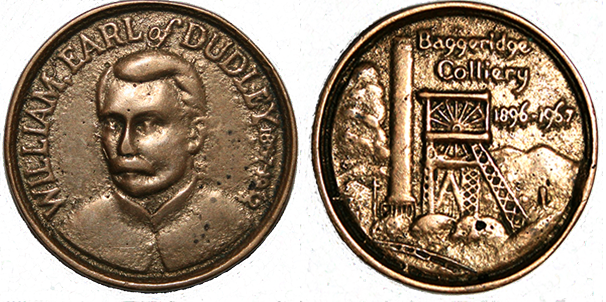
|

|
|
|
Landmarks ~
Churches ~
Pubs ~
Shops ~
Amenities ~
Dwellings ~
Events ~
Schools ~
Sports
Industrial ~ Transport ~ Folklore ~ Families
~ Gallery - Industrial ~
Clifford Williams
Clifford Williams established his clothing manufactory in Gornal sometime in the late 1930's.
The original premises occupying an old two storey warehouse, off Louise Street, Gornal Wood,
to the rear of where the Sainsbury's supermarket now stands.
A new and larger factory was built opposite 'The Fiddlers Arms' in Straits Road, Gornal.
In its heyday, the works employed many local women manufacturing for the clothing industry.
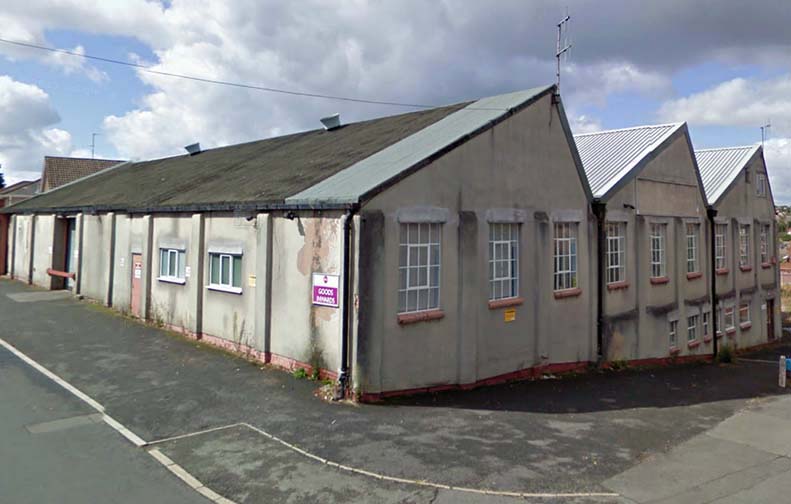 Clifford Williams & Sons, clothing manufacturers. Clifford Williams & Sons, clothing manufacturers.
The vacant Clifford Williams factory in Straits Road pictured just before demolition c2012 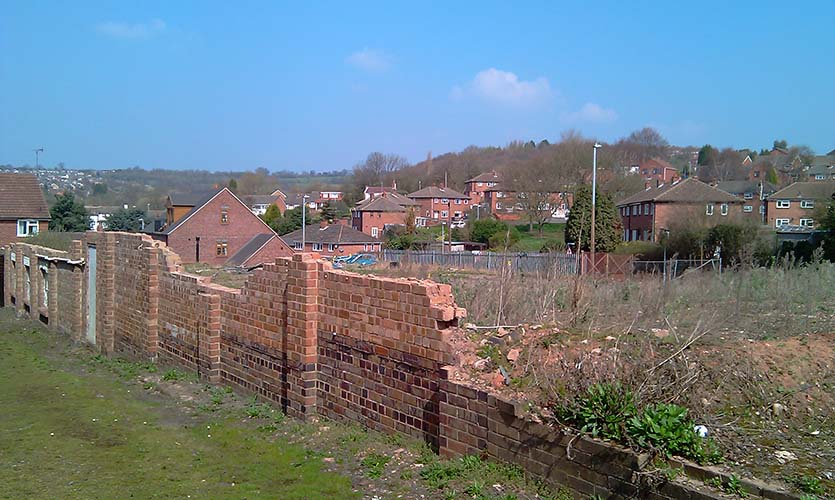 The rear of the demolished works, only a small part of the old wall remains.
Photo 2015
The rear of the demolished works, only a small part of the old wall remains.
Photo 2015
The factory closed in the early 1990s and the buildings were subsequently used by the local plumbing and heating firm CHN.
CHN founded in 1970, sold out to the energy firm 'eon' in 2008 and the buildings vacated.
The buildings were demolished in 2013 and after 2020 the plot has been under development
with new housing.
Clifford Williams has a wholesale clothing business at 44 Holyhead Head, Birmingham
as early as 1917.
The Company at Birmingham was formed in 1932 as Clifford Williams & Son, Ltd.,
as a wholesale clothing manufacturer and was made a public company in 1937.
In 1939, the firm had works at Handsworth, Dudley, Hurst Hill,
Burnley, Blackpool and Gornal employing 1000 people.
In the 1950s, Clifford Williams had works at Handsworth; Little Street, Dudley;
Dixons Green, Dudley; Coseley; Brook Street, Tipton;
Hall Lane, Hurst Hill; Hope Street, Belfast as well as the works in Straits Road, Gornal
At this time, manufacturing ready-made mens and boys clothing.
In 1953, a press report indicates the Clifford Williams factories operating at Anne Road, Handsworth; Dixons Green, Dudley; Gornal; Hurst Hill,
Little Street, Tipton and Oswestry.
The report boasted an outing to Dudley Sports Centre where 400 employees attended their fifth Annual Sports Day, with competition between the factories. With events for girls, men and women, like 40 and 80 yard sprints, sack race; obstacle race, shoe race, egg and spoon race, etc. ~
The Gornal Sewing Trade
One of the reasons why Clifford Williams chose to build a factory at Gornal Wood was the ready supply of experienced sewing machinists in the Village as the following article from 1932 reports.
A newspaper article in the Birmingham Gazette, Wednesday, 15 June 1932 describes the
Village's Sewing Trade.
Black Country Village where the Men Run the Homes, their womenfolk find the money
Gornal Wood, the most westerly of the three Gornals, is a village of seamstresses.
In common with other parts of the Black Country, the women in Gornal Wood for a
number of generations have stitched clothes which have been cut out by tailors
in their establishments some miles away.
At one time the wages received by the seamstresses for this home-stitching were
a useful supplement to their men's money, but to-day in many homes in
Gornal Wood these "stitcheries" are an absolute necessity for the livelihood
of the family.
They Stitch & Stitch from Morn Till Night.
Their Old Trade
Many of the wives were formerly employed in clothing factories, and the pressure
of economic circumstances has driven them to their old trade but at home.
It is the wife who works-while the husband, frequently as unemployed collier
who has exhausted his insurance benefit, does the house-work.
For, as one of them said to me, "Somebody's got to do it." So while the
woman treadles the machine, her husband peels the potatoes-if there area any.
Years ago, children carried "sewing" or "work" as it was called, to and from
the tailor's shop, but the area of supply has widened, and now includes Birmingham.
Sometimes the journey is made by bus, but often a lorry, or a truck,
hired collectively by several woman carries the work twice or three times a week.
Girls From School
I asked a well-known resident what was the extent of home-stitching, and he replied
"There's a tremendous amount of it, in some houses you will find perhaps half-a-dozen machines going."
Not only do the wife, daughters, and daughters-in-law stitch, but I was told that
women employ girls leaving school to work for them.
"What about the factory regulations?" I asked, and my informant could only spread this hands.
" and the wages paid for the sewing?"
"Well, I don't know" he replied " but I think they're not very big."
During the inter-war years, a particularly needy time due to the general depression, many Gornal women folk
were engaged in sewing up trousers, fabric cut-outs being collected from Grainger & Smith Ltd., a large
woolen merchant in King Street, Dudley. The trousers would be sewen up at home and then the finished goods
handing back to Dudley.
~
|
|
|
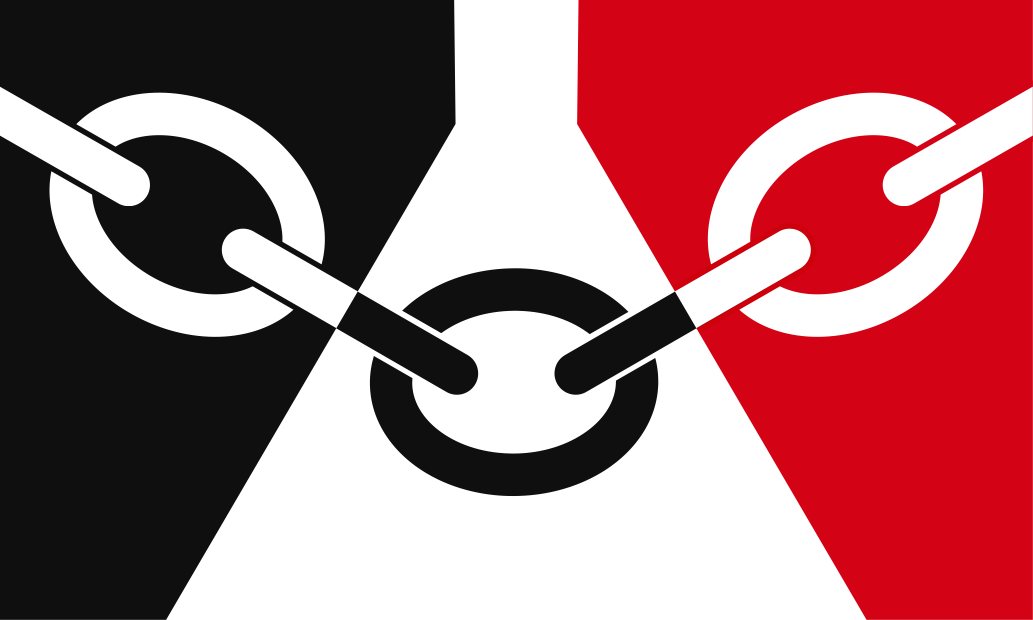
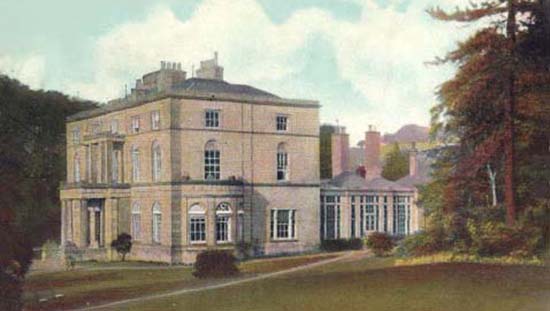

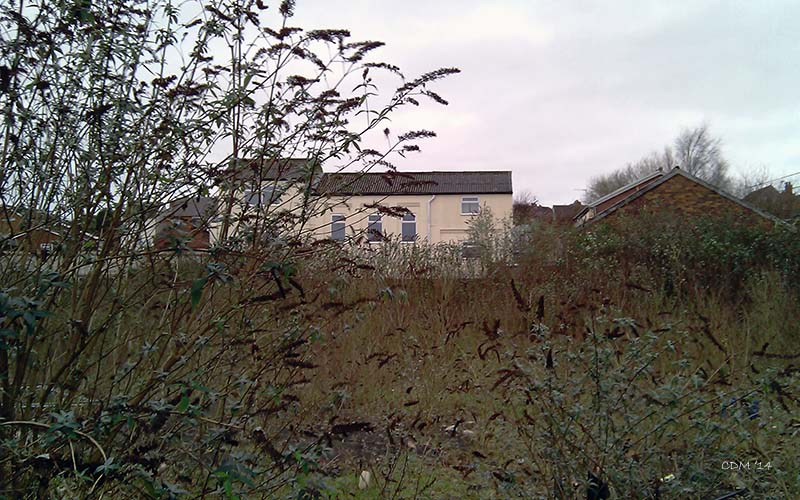 Gasworks
Gasworks